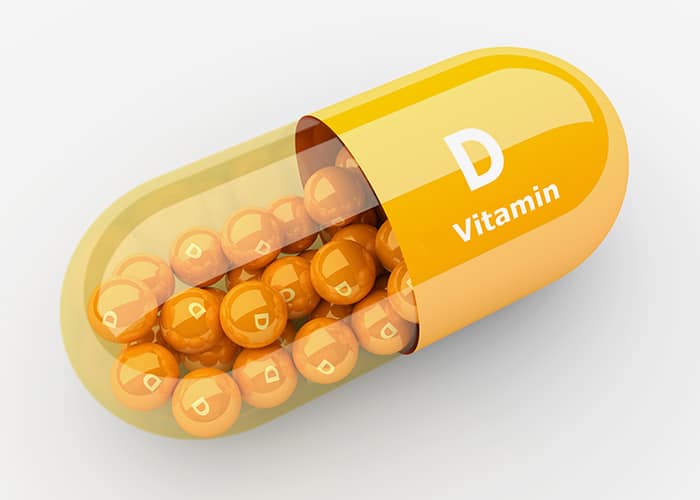
Five Ways To Proactively Safeguard Our Health and Wellness
Published: May 2020
Living healthy is a goal we know is important – but it can be elusive to many of us. The majority (51%) of Americans responding to a recent Life Extension survey agreed that people should always focus on wellness. However, less than a quarter (20%) said they’ve made their own health a top priority. It’s critical to do all we can to protect our health.
The good news is that whole-body health is achievable if we’re proactive. Our health is made up of many variables – social, physical, mental and emotional. With science as your guide, you have the power to own your wellness. That’s the approach Life Extension stands for, and I’m proud to be working with a company that is committed to helping people to live their healthiest.
Look to science to lead your wellness journey
I’m often asked, “What will keep a person healthy?” It’s normal to want that one silver bullet, but honestly, our bodies are complex and need more than the latest health fad to work at optimal levels. You’ll hear questionable health tips and tricks lacking science-backed evidence at every turn. But if you pay attention to the science, it can be easier than you think.
We all know that eating the right foods and getting regular exercise are building blocks for better health. Here are five additional factors that often get overlooked because they’re not as visible: immunity, sleep, mental wellness, inflammation and energy. These all work harmoniously to create whole-body health. Let’s look at how you can take charge of your own wellness and how vitamins and supplements can support those efforts.
1. Boosting your immunity

Staying well is a lot easier than getting well. The time to invest in your health is before an issue arises that could potentially lead to illness. You can help reinforce your body’s immune response to defend against all types of infections – from mild colds to dangerous influenza and life-threatening pneumonia. A nutrient-dense diet, regular exercise, adequate sleep and stress management all can contribute to healthy immune function.
One simple but important way to boost your immunity is to take vitamin D. This nutrient is the orchestrator of the entire immune system, and it’s actually in charge of your immune cells and how they work together for a robust immune response. However, vitamin D remains a shortfall nutrient for many, and people of color are especially prone to deficiencies, with up to 82 percent of African Americans and 69 percent of Hispanics reporting a lack of this immunity superstar.
Other ways to support respiratory health include zinc lozenges, vitamin C, lactoferrin and selenium. Don’t wait until you’re fully sick to take advantage of these nutrients. Being proactive before and at the onset of having symptoms can make a huge difference in how your body fights off viral infections.
2. Maximizing sleep

Your body’s natural way to recharge is when you’re getting a restful night’s sleep. But these days, a lot of folks are having a harder time going to sleep and staying asleep whether from disrupted schedules, increased stress or more screen time.
Try to get outside in the sunlight during the day and minimize light, especially blue light, at night. This means avoiding TV, smartphones and computer screens for two hours before bedtime.
It is also important to settle into a familiar nighttime routine. Maybe you like to read a book or listen to calming music. Setting consistent times to wake and sleep, even on the weekend, should be part of that routine. Many people find that taking melatonin before bed helps to establish the circadian rhythm for a better night’s sleep. Lab studies from MIT show that a robust circadian rhythm is correlated with a longer lifespan. Magnesium, tryptophan and glycine can also promote restful sleep.
3. Making mental wellness a priority

If you’ve been in a constant state of anxiety or stress with fewer ways to seek connections with friends and family, you’re not alone. With the isolation and uncertainty caused by the ongoing pandemic, it’s more important than ever to tend to your emotional and mental wellness.
Pay attention to your body’s signals that you’re under stress. If you’re overwhelmed with caring for children or parents, carve out time for yourself. Take a walk – even a short one can brighten your mood. Or maybe you feel cut off from others. Find new ways to reach out to a friend or family member. Meditation and mindfulness are also good practices to consider, especially if it’s hard to stay focused or engaged.
Targeted nutrients may also help restore a healthy state of mind. One clinical trial concluded that multivitamins, in particular B-complex supplements, can be effective for lowering perceived stress, reducing mild psychiatric symptoms and improving everyday mood in healthy individuals. Clinical trials have also shown that the herb ashwagandha is effective for relieving stress and anxiety. Other integrative therapies that can help include omega-3 fatty acids and sesame lignans and olive extract.
We always recommend contacting a mental health professional if you need an unbiased person to talk to. Telehealth is making it easier to get the help you need without leaving home.
4. Reducing harmful inflammation

We’re starting to understand more about the body’s inflammatory response and the role it plays in nearly every aspect of your health, from your joints to your brain function, especially as we age.
Inflammation itself is not a disease, but it can be an invisible indicator of a more serious health concern. In fact, long-term, low-level inflammation contributes to at least seven of the leading causes of mortality in the United States: heart disease, cancer, chronic lower respiratory disease, stroke, Alzheimer’s disease, diabetes and kidney disease. And it’s associated with arthritis, osteoporosis and depression. Blood testing is a common way to detect inflammation in the body.
To promote a healthy inflammatory response, look to consume a healthy diet rich in fruits, vegetables and healthy fats while limiting fried or processed foods and items with too much added sugar. But what should you eat more of to help prevent inflammation? Omega-3 fatty acids help promote heart and whole-body health, while curcumin (an extract of the spice turmeric) supports joint and heart health. If it’s hard to get enough of these nutrients in your daily diet, high-quality supplements can be a great addition to your health routine.
5. Optimizing energy

When you’re balancing work, family, childcare and home responsibilities, how can you find – and maintain – your energy levels? Energy is the foundation for total wellness, and it really starts at the cellular level. Make sure you’re getting the right vitamins, minerals and nutrients to fuel your body’s mitochondria, the tiny energy factories that produce the energy your cells need. And we can all use more of that, right?
Nature created coenzyme Q10 (CoQ10) to play a vital role in creating cellular energy. CoQ10, particularly in the form of ubiquinol, can help the mitochondria in our cells to create more energy. Vitamin B-complex and vitamin B3 (niacin) also help support the production of energy and other aspects of wellbeing. As always, a healthy diet and exercise are important, but speak with your physician to ensure you’re getting what your body needs.
Your health and wellness are worth protecting
We’re each responsible for taking charge of our own wellness. Life Extension is making it easier for you to live your healthiest life every day. While we all want to live a long life, it’s important to reframe that goal to make sure we’re living the healthiest life possible so that the journey is enjoyable.
References
- "10 Healthy Lifestyle Tips for Adults." Eufic, June 2017, https://www.eufic.org/en/healthy-living/article/10-healthy-lifestyle-tips-for-adults
- "How to look after your mental health." Mental Health Foundation, https://www.mentalhealth.org.uk/publications/how-to-mental-health
- Mayo Clinic Staff. "Sleep tips: 6 steps to better sleep." Mayo Clinic, April 2020, https://www.mayoclinic.org/healthy-lifestyle/adult-health/in-depth/sleep/art-20048379



